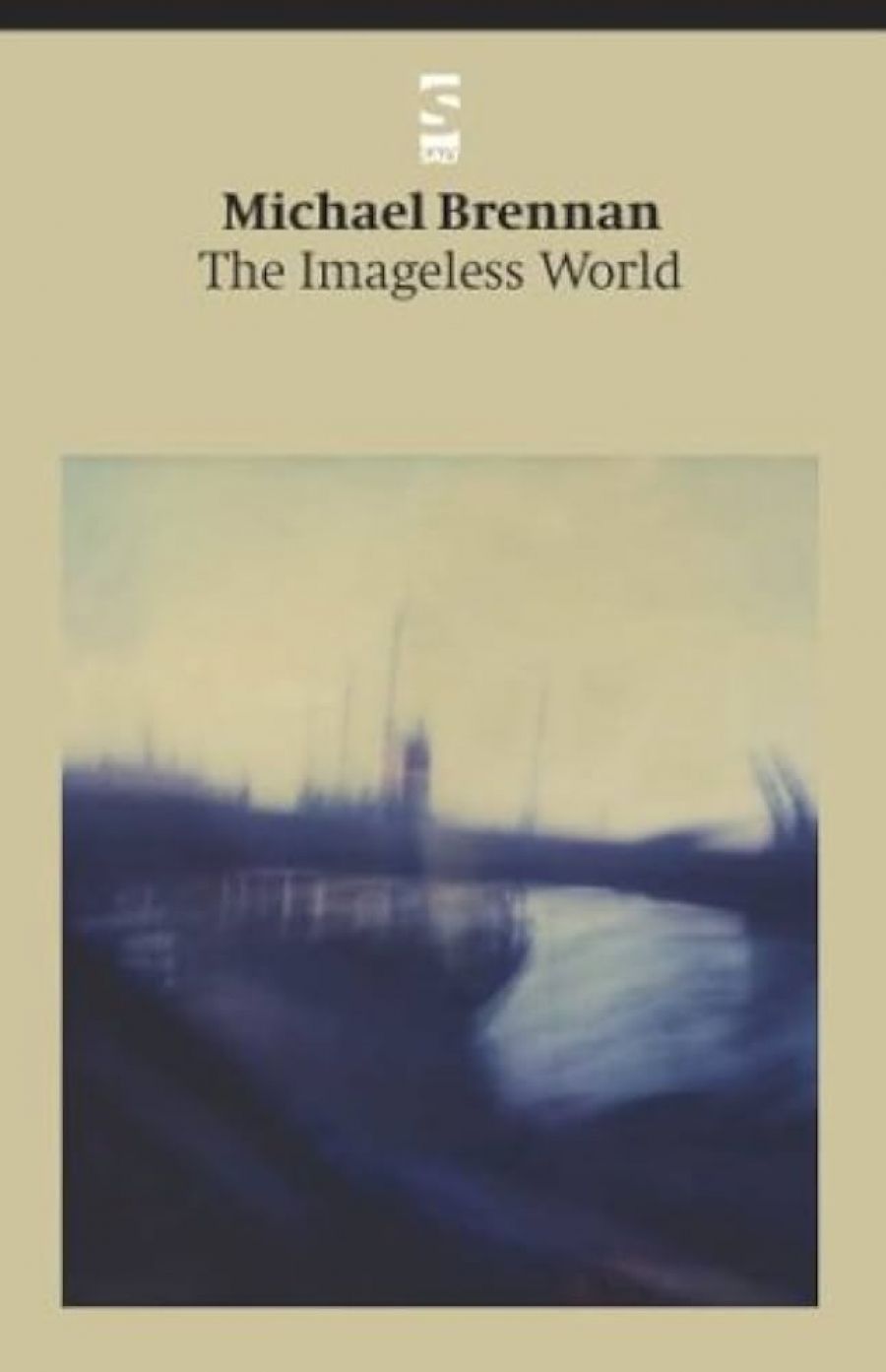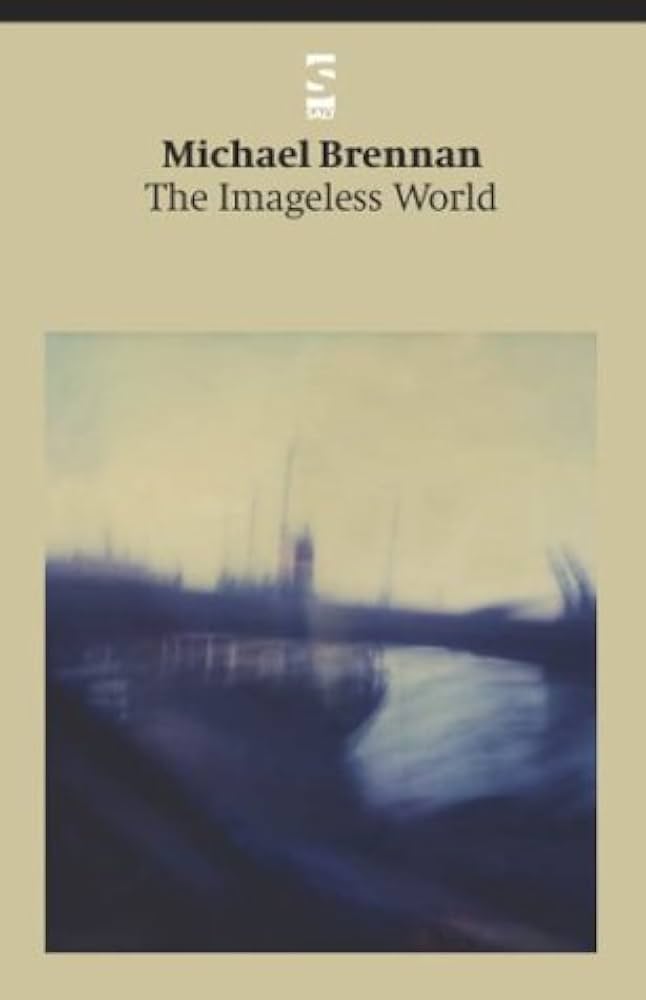
- Free Article: No
- Contents Category: Poetry
- Review Article: Yes
- Online Only: No
- Custom Highlight Text:
Poetry is a form of resistance to loss, death and oppression. But, like any communication channel, it has its own resistance. Poetry does not simply communicate experience or presence. This resistant quality of the medium has often attracted attention. The opening of Wallace Stevens’s ‘Man Carrying Thing’ is a famous example: ‘The poem must resist the intelligence / Almost successfully.’
- Book 1 Title: The Imageless World
- Book 1 Biblio: Salt, $22.95pb, 93pp
- Book 1 Cover Small (400 x 600):

- Book 1 Cover (800 x 1200):

Michael Brennan’s extraordinary first collection, The lmageless World, is a masterly response to the resistance of poetry. His poetry inclines to the limits of the expressible – ‘The open sky was never reflected in a blank page or its silence’ – and it is marked by an astonishing musicality: ‘She listens and counts petals just so many / grains of sunlight trapped.’ Brennan is also deeply knowledgeable about the condition of his art and about modern poetry’s tradition of negativity. His poems are immensely powerful, open to the language of experience and yet illustrative of the inadequacies of that language. He also understands his art enough to know that it’s not enough merely to repeat. Brennan’s poems are steeped in poetic tradition, in an agon with previous poets, especially Mallarmé and Rilke. But his struggle with other poets is a way of finding his own voice.
‘Voice’ might seem an embarrassingly Romantic notion (based on authenticity, presence and so on), but Brennan’s poetic struggles have produced a recognisable voice, even as he works with images of negativity, absence, and loss. Brennan is a master of the ellipse. He knows exactly how little to give without lapsing into obscurity. In the sequence of short prose fragments called ‘Ellipses’, we find: ‘A compact-disc or two. A book, a phrase. Another’s patience or friend, the end of a sentence. A ride between cities. The occasional meal. Sleep. Best and worst intentions and some occasional kindness. Somewhere near twenty-seven, or five, or sixty-three years. All those stolen things.’ The pared-back syntax, the verbless sentences, the elegant rhythm all suggest intense artistry, the maximum effect made with the least materials.
‘Ellipses’ also shows that Brennan is not simply a poet of absences. His book’s title suggests the oxymoronic quality of his poetry. He is concerned not just with the imagelessness of things, but also with the world. It is present in poems about travel, cars, love and the occasional political moment. It’s also seen in Brennan’s humour and contemporary tone, things that make him more than a faux Symbolist. ‘Ellipses’, elliptically concerned with love, shows Brennan’s wit and stylistic range: ‘A riverbed of bald, sleepless men’; ‘By the ninth time her message hasn’t changed I’ll pour out some wine and quit this stupid dancing’. This last example shows a self-directed irony that saves Brennan’s poems from preciousness.
The convergence of the world and of the imagelessness of experience is commonly found in moments: walking through the London Underground; looking at photographs. In these moments, Brennan presents the poetic: imaging imagelessness by bringing together the precise and the indistinct.
Brennan’s poetry is deeply erudite but never merely bookish or derivative. He is attracted to sequences, prose poetry, the sonnet, the epigram. Among his most accessible poems is a discontinuous sequence of poems entitled ‘Letter Home’. These are generally elegiac (as the title would suggest), and often deal with friendship: ‘Amid all the drifting, friendship continues, // A series of letters forming each other, // Gifts stolen and returned changed, / The impossible words we become.’ This note can be sounded more explicitly (and movingly) elegiac, as in ‘She knows our shadow and its body / Are gifts, one day exchanged.’
This interest in presence and loss makes it unsurprising that Brennan can tend towards the theological. ‘Excavation Series’, one of the most original of Brennan’s works, is a kind of meditation on divinity, oddly (but effectively) employing images of cars and driving. It brings about some of Brennan’s most lyrical and intense moments.
Brennan’s range is seen in comparing this sequence with ‘Locuting Love’, a serio-comic sequence that articulates a Mallarméan interest in surfaces and blankness. The poems are complemented by photographs of examples of such blankness: a box, the back of a postcard, a filing card. The ironical tone of the sequence shows poetry to be a kind of game, but one that isn’t necessarily always played for laughs: ‘Like Hamlet said, “Words. Words. Words.”’
At thirty, Brennan already has an impressive list of contributions to Australian letters. Notably, he co-edited (with Peter Minter) Calyx: 30 Contemporary Australian Poets (2000), a landmark anthology that accurately defined some of the most important developments in contemporary Australian poetry. He is also the founding director of Vagabond Press, which has produced some of the most significant chapbooks in recent years (giving first publications to poets such as Michael Farrell, Kate Lilley and others).
The first time I read The lmageless World, I did so without a pen in my hand. It was impossible to treat this book as just one more exercise in professional reading. I read it for its musicality, strangeness and power. It is an astonishingly beautiful work. In years to come, it will surely be seen as one of the most important debuts of this generation of poets.


Comments powered by CComment